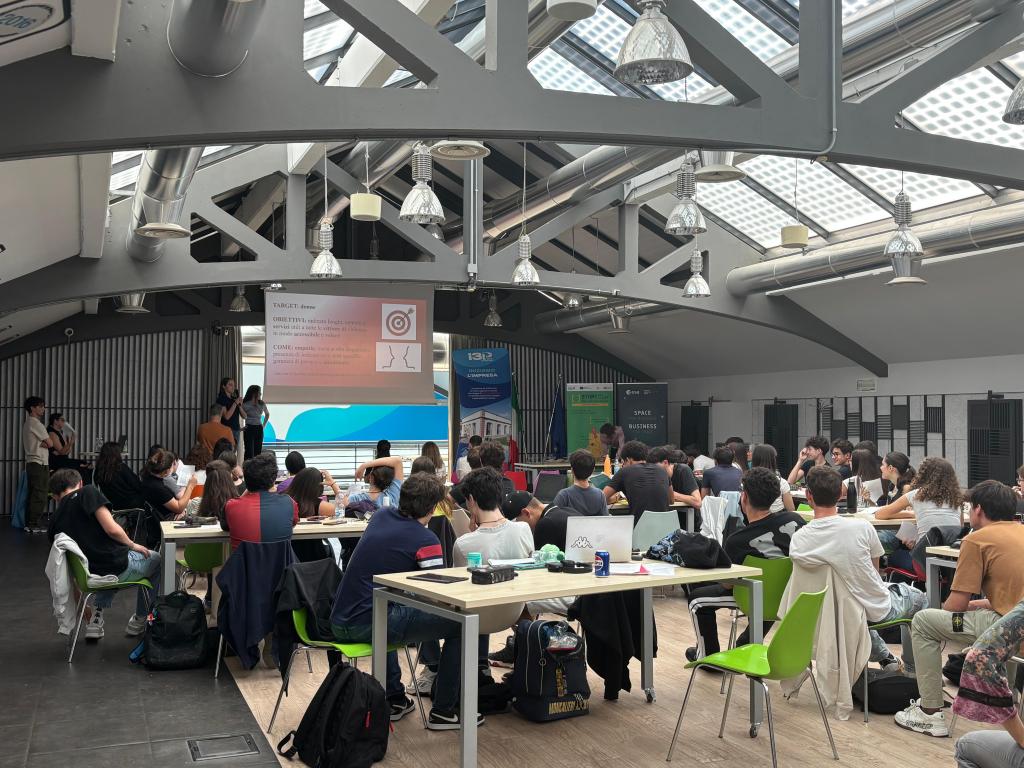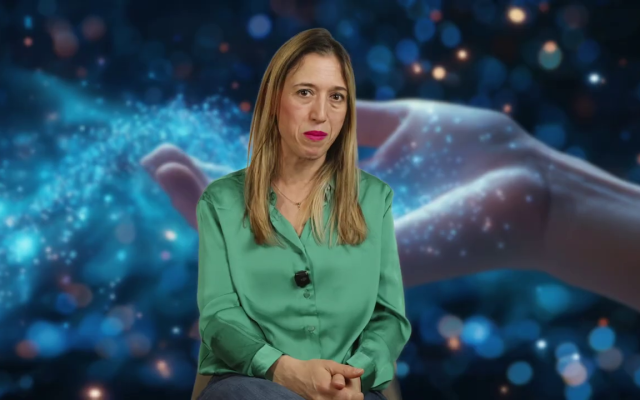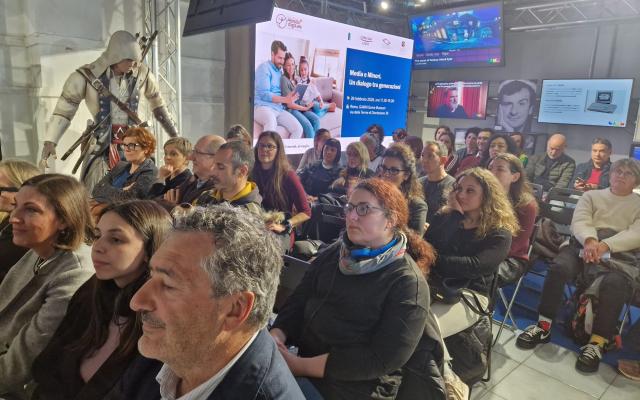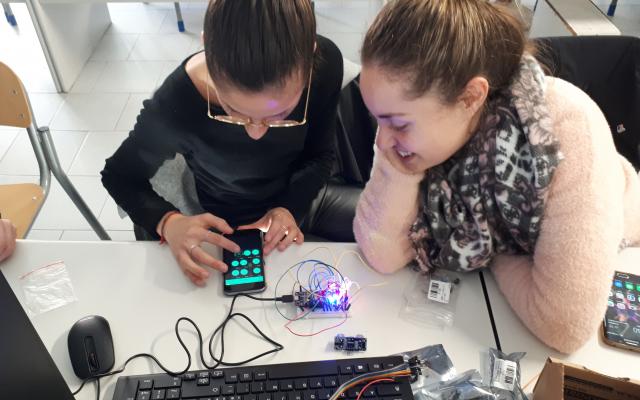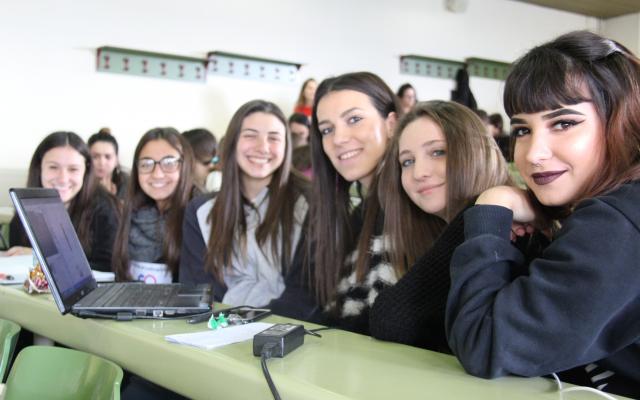Coding Girls in Turin: 20 teams compete to develop chatbots that simplify access to social services
Yesterday, 74 high school students from Turin and the surrounding area competed in the final hackathon of the fourth edition of Coding Girls in Turin, an initiative promoted by Fondazione Mondo Digitale ETS in collaboration with Fondazione Compagnia di San Paolo to introduce students to STEM subjects and the opportunities offered by digital technology. Organised into 20 teams, the students designed a virtual assistant to respond to the challenge 'ChatCare. The chatbot for inclusion and social support', with the aim of developing intelligent technology capable of simplifying access to social and assistance services in the city of Turin, offering immediate, reliable and tailored information to those who need it most.
The winners
Best project
VroomVroomTO by team 12 “Somme” from ITC G. Sommeiller
Team members: Cristian, Leonardo, Sebastian and Alessandro
A virtual assistant to help people find their way around Turin. Designed for students, tourists, the elderly and people with disabilities, it suggests the best means of transport and places to visit in real time, integrating game features to explore the city.

Most inclusive project
TurinForAll by team 20 ‘Tronky's fc’ from IIS A. Avogadro
Team members: Ilyas, Lorenzo and Adam
A multilingual chatbot designed to facilitate access to municipal services for foreign citizens. It provides clear information on school canteens, transport, residence and documents, making even the most complex procedures simple thanks to an interactive and accessible guide.
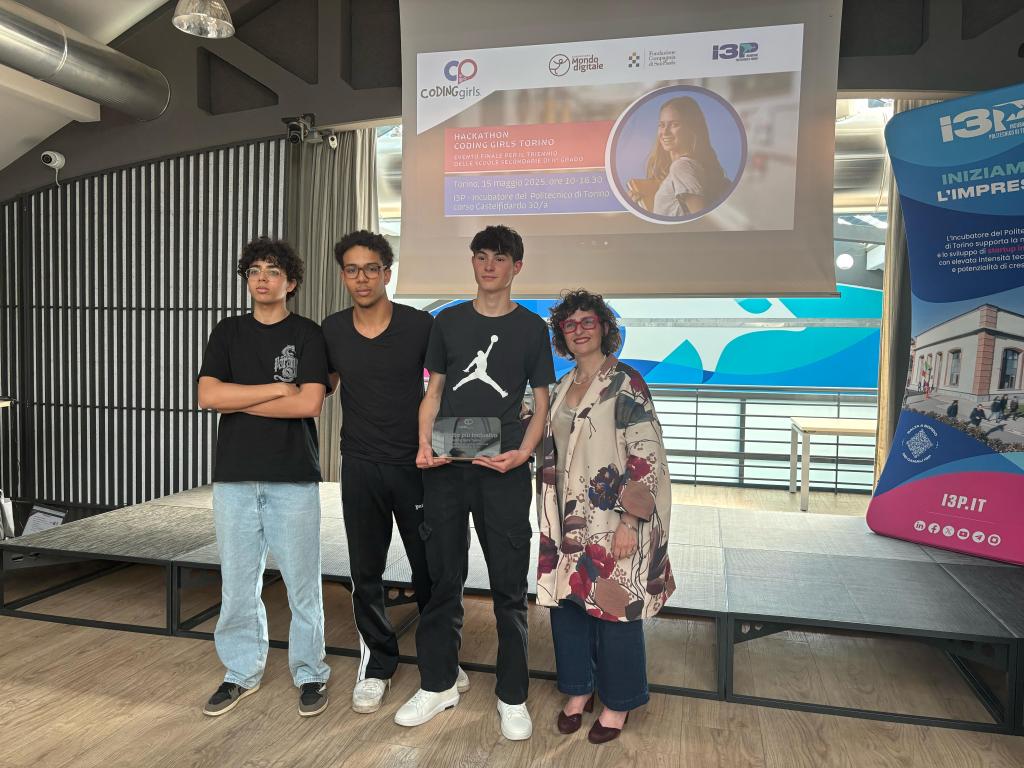
Most creative project
Stayability by team 6 ‘Visg a Visg’ from the Convitto Nazionale Umberto I
Team members: Sofia, Isabella, Giulia and Vittoria
A chatbot that helps people with motor and visual disabilities find accessible accommodation in Piedmont. The system suggests solutions based on the level of accessibility, with a simple interface and multiple-choice questions.
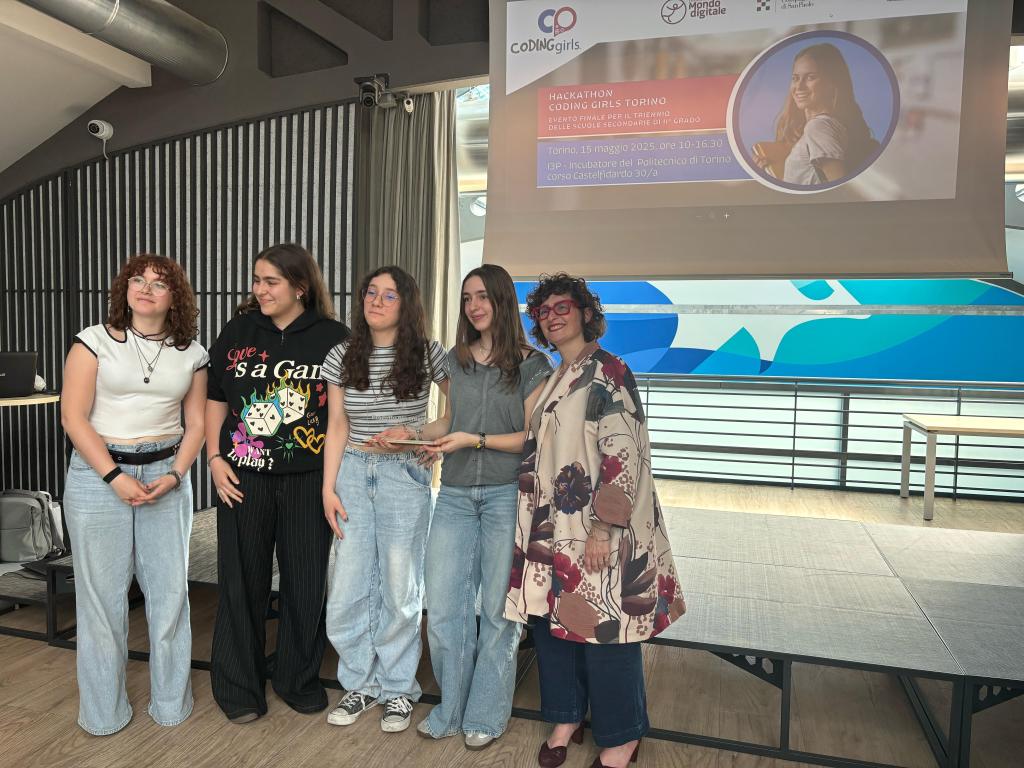
Best user-friendly chatbot
Scarpe Rosse by team 16 from the Galileo-Ferraris Institute
Team members: Emma, Victoria, Elisa and Viola
An intelligent assistant that creates an anonymous and secure channel for women who are victims of violence. It provides emotional support, useful contacts and immediate guidance, with information verified by public sources.
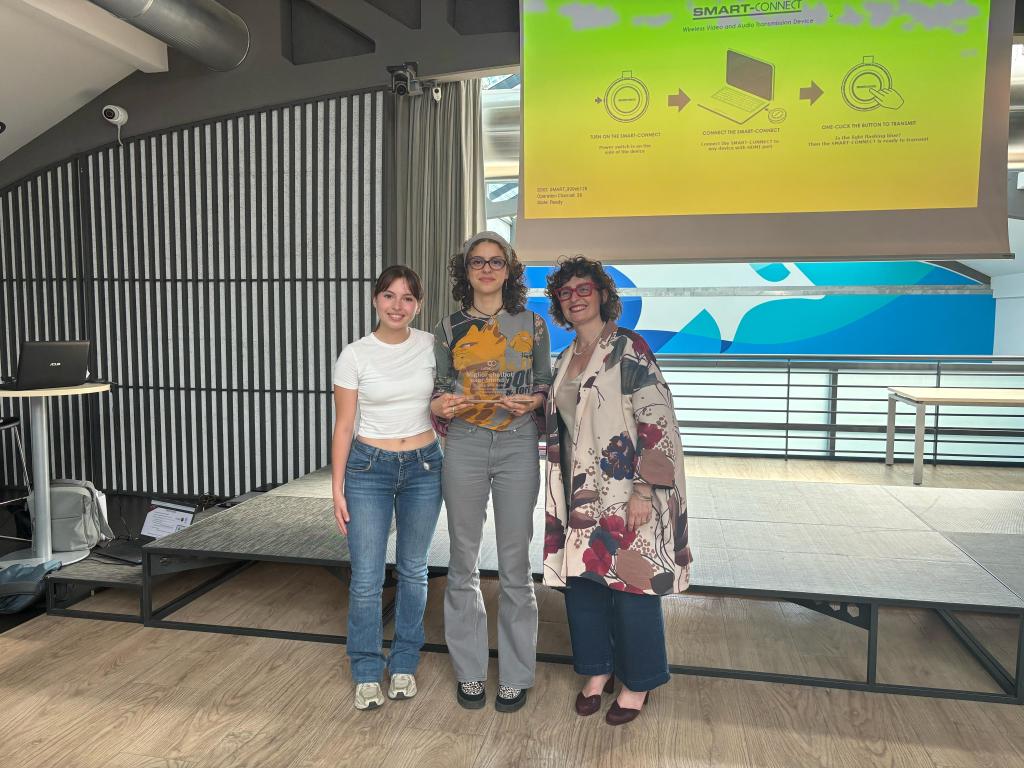
During the day, the head of U-Care Medical, a spin-off of the Polytechnic University of Turin and a young I3P alumna company that won the 2023 Startup Award at the famous national competition ‘Premio 2031’, spoke about startups.
On 15 April, the first final event of Coding Girls in Turin for lower secondary schools took place. This training course involved over 50 students, who were engaged in the development of creative digital projects with Scratch, in line with the Sustainable Development Goals of the 2030 Agenda [read the news item Creativity and sustainability].
For eleven years, the Coding Girls programme has been contributing to the challenge of achieving equal opportunities in science and technology by acting on several fronts, with a collaborative alliance based on the ‘Education for Life’ model, between schools, universities, organisations and companies united by common goals to help young female students gain confidence in science and orient themselves towards technical and scientific studies and professions. The alliance, led by the Fondazione Mondo Digitale ETS, with the patronage of the US Diplomatic Mission in Italy, sees the active collaboration of Microsoft, Fondazione Compagnia di San Paolo, ING Italia, Roboteco Italargon, Google.org.
The project involves a dense territorial network of schools, families, universities, companies and public and private organisations. Thanks to this solid educational consortium, after involving around 15,000 female students in more than 30 Italian cities and over 33 universities, the programme offers young women the opportunity to meet role models from the academic and business worlds, to be inspired by their stories and discover new career opportunities and fields. There are several different strands: AI at the service of the local community (University of Cagliari, University of Salerno), cybersecurity against cyberbullying (La Sapienza University of Rome and Federico II University of Naples), data science (University of Milan), financial education and environmental sustainability. The programme is based on a peer-to-peer training model: in Palermo, 50 university students become tutors for high school students, while in Milan, mixed teams of Italian and foreign university students train their younger colleagues. There are also opportunities for personal development through the Personal Ecosystem Canvas tool, which helps participants to consciously plan their future.
